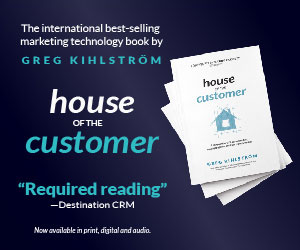This article was based on the interview with Tommi Marsans by Greg Kihlström, MarTech keynote speaker for the B2B Agility with Greg Kihlström podcast. Listen to the original episode here:
Agility is key to success in today’s fast-paced and ever-changing business landscape. This is evident in the field of B2B marketing, where companies must adapt quickly to meet the needs of customers and stay ahead of the competition. In the podcast interview, the importance of agility is discussed, highlighting its role in driving successful outcomes.
The podcast emphasizes that while technology and platforms are important, it is the people and processes that can make or break a team’s success. While technical complexities may be daunting, it is the focus on the first two elements that can truly drive transformation and ensure positive results. Process and operational structure play a significant role in the success of initiatives, and keeping teams focused on the right things is crucial.
One way to achieve this is by leveraging AI as an assist rather than a replacement for human capabilities. AI can enhance people and processes, making jobs easier and improving efficiency. By identifying pain points and bottlenecks in processes, organizations can automate tasks that may seem small but have a significant impact on the experience of employees and customers. By prioritizing the needs of those who are customer-facing, such as salespeople and customer service representatives, organizations can create a better overall experience.
There may be anxiety surrounding the role of AI and its potential to take over jobs. However, the podcast presents a more optimistic viewpoint, viewing AI as augmentation rather than replacement. AI can handle tasks that humans may not enjoy or excel at, freeing up time for individuals to focus on more meaningful and fulfilling work. Just as manual labor was automated a century ago without significant loss, the same can be true for the knowledge revolution happening today.
The podcast also touches on the importance of agility in the enterprise. Agility is defined as the ability to react quickly to the marketplace or customer needs. In today’s technologically advanced world, customers expect companies to understand their wants and needs. Companies that are not agile and unable to respond quickly to these expectations risk losing out to competitors. The example of Zoom is given, highlighting how the company’s ability to adapt quickly during the pandemic allowed them to gain a competitive advantage over other companies in the same space.
Agility is not just about following a specific methodology or process like scrum or safe. It is about being flexible, quick to respond, and adaptable to change. It is a critical factor for companies to thrive in a competitive marketplace. In the future, agility will become a foundational piece rather than a differentiator, as it becomes an expectation in the business world.
Agility is key to success in B2B marketing and beyond. By focusing on people, processes, and leveraging technology as an assist, organizations can create a more efficient and effective working environment. Agility allows companies to adapt quickly to customer needs and changing market conditions, giving them a competitive edge. Leaders play a crucial role in fostering agility by cultivating teamwork, trust, and a shared vision among team members. With agility as a foundational piece, companies can overcome challenges and achieve remarkable results in today’s dynamic business landscape.










